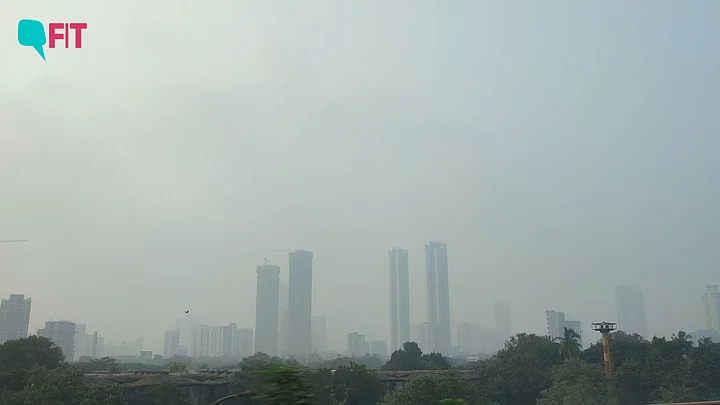The Bombay High Court has taken suo moto cognisance of Mumbai's deteriorating air quality on Tuesday, 31 October. This comes after a PIL was filed in the court to address how the poor air quality was impacting the health of Mumbaikars.
With an Air Quality Index (AQI) of 181, Mumbai witnessed the most polluted air for the month on 24 October.
But this is not a surprise. Over the past three to four years, every October, Mumbai's air quality has been deteriorating at an increasing pace.
"For a long time, there was a complacency in Mumbai that the sea breeze will blow the pollution away since it's a coastal city. But data recently has been showing otherwise."Anumita Roychowdhury, Executive Director, Research and Advocacy, Centre for Science and Environment
As pollution in Mumbai makes headlines, FIT does a deep dive into the numbers behind sinking air quality of Mumbai and why Maharashtra needs to act quick.
Air Pollution: Numbers That Matter
What's also concerning is that on some days, the air pollution in Mumbai has been worse than Delhi's – which is infamous for being India's most polluted city.
Dust, Debris & Waste: The Pollutants To Blame
But it's not just the pollutants that are to blame this time around. Climate change has been playing its part too.
Dr Gufran Beig, former project director of System of Air Quality and Weather Forecasting and Research (SAFAR), tells FIT:
“Mumbai’s natural advantage, being a coastal city, is that wind reversal takes place every 3-4 days and sweeps away all the pollutants, improving the air quality. The wind speed that pushes pollutants out of Mumbai is also relatively higher.”
But, continues Dr Beig, "the surface winds which are usually fast in Mumbai have slowed down. The frequency of wind circulation has slowed too. This is the reason that air quality is deteriorating."
Maharashtra Needs To Act Quick
Maharashtra now needs to act quick. On Wednesday, 25 October, BMC issued a set of guidelines to curb pollution:
All construction sites should have sensor-based air pollution monitors.
All construction sites need to be surrounded by tin, metal sheets, or tarpaulin.
All debris and demolition sites should have water sprinklers.
All major roads will be cleaned daily by the BMC.
Open burning of waste has been banned.
But there's more that needs to be done. Raghu Murtugudde, Earth System Scientist at IIT Bombay, tells FIT:
“Maharashtra needs to look at how winds are changing and how to control where the pollution is coming from. There’s a lot of dust coming from Pakistan, Northwestern India, Central India, etc. The winds coming down from the Western Ghats are warm and are trapping pollution in the air too.”
Anumita Roychowdhury, Executive Director, Research and Advocacy, Centre for Science and Environment, agrees with Murtugudde. She also points out that currently there are lags in the implementation of policy measures that need to change.
She suggests:
Construction sites require stringent implementation of dust control measures.
Construction and demolition waste should be segregated, disposed consciously, and recycled too.
To prevent open burning of waste, BMC needs to set up adequate material recovery and recyclable centres.
Solid fuels in eateries need to be eliminated.
Cleaner Action Plan needs to be spread across sectors to address every source of pollution.
Public transport needs to be improved.

